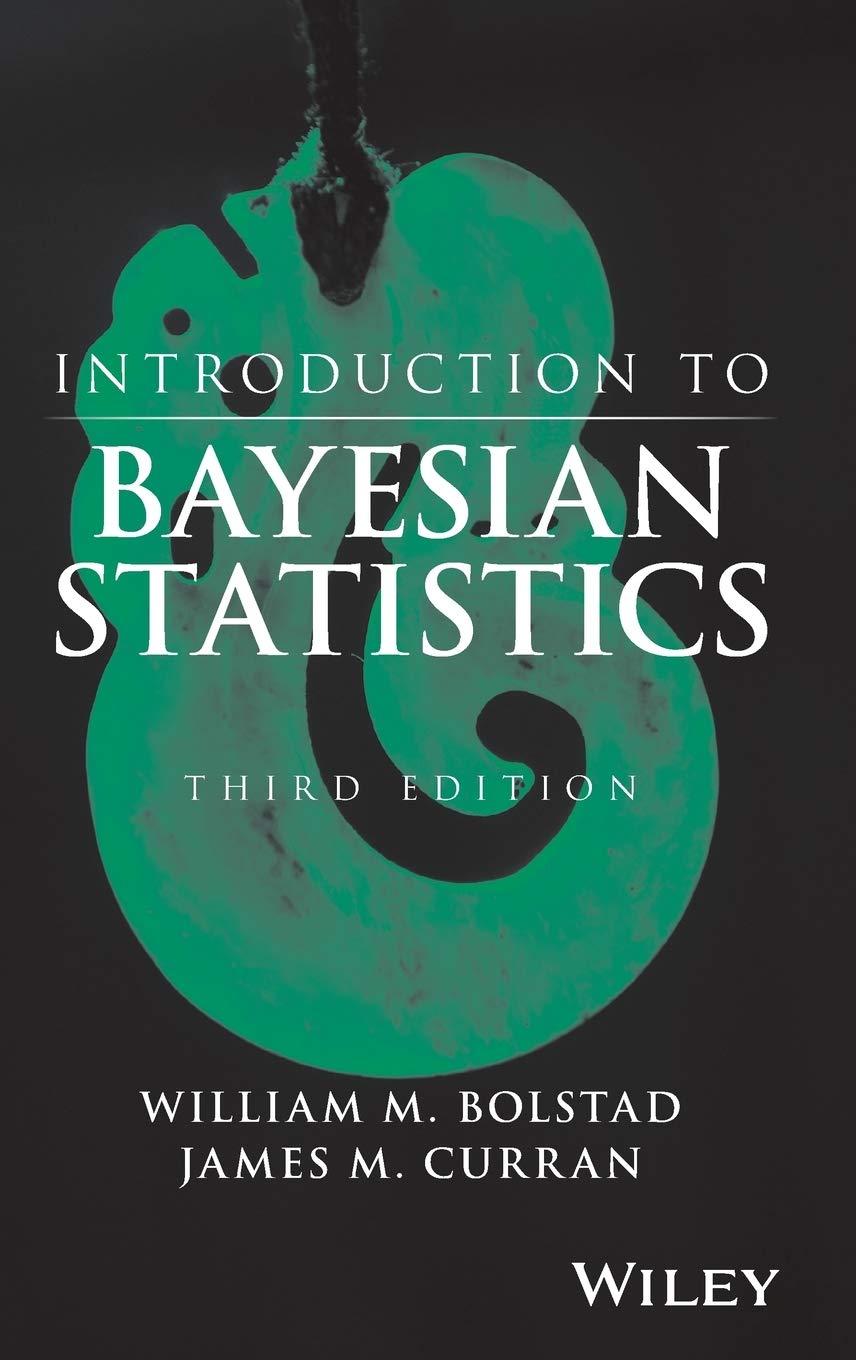Suppose there is a medical diagnostic test for a disease. The sensitivity of the test is .95
Question:
Suppose there is a medical diagnostic test for a disease. The sensitivity of the test is .95 . This means that if a person has the disease, the probability that the test gives a positive response is .95 . The specific city of the test is .90. This means that if a person does not have the disease, the probability that the test gives a negative response is .90 , or that the false positive rate of the test is .10 . In the population, \(1 \%\) of the people have the disease. What is the probability that a person tested has the disease, given the results of the test is positive? Let \(D\) be the event the person has the disease and let \(T\) be the event the test gives a positive result.
Step by Step Answer:

Introduction To Bayesian Statistics
ISBN: 9781118091562
3rd Edition
Authors: William M. Bolstad, James M. Curran





